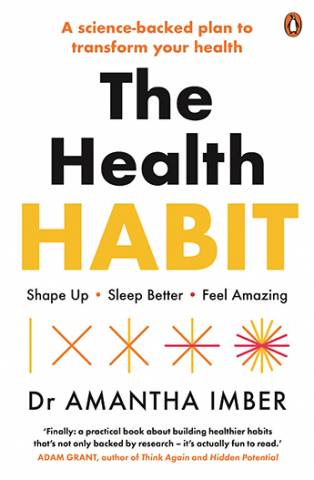Forty-one per cent of Americans set New Year's resolutions. That's 135 million people who set goals on the same day, every year. You won't be surprised to learn that more goals are announced and started on this day than any other. While many resolutions are dead in the water by February, what we often don't hear about are the many that actually stick. And given most behaviour change efforts fail, what is it about New Year's Day that gives us a better chance at success than, say, kicking off your new diet on 24 May?
Research led by Wharton Professor Katy Milkman in 2014 helped me start to understand why this is the case. In one study, she found that Google searches for the word 'diet' increased by 14 per cent at the start of a new week and by 82 per cent at the start of a new year. Search volumes also experienced a 10 per cent spike after public holidays.
Essentially, searches for 'diet' tended to spike following what she referred to as 'temporal landmarks'. A temporal landmark is a significant or memorable point in time that serves as a reference for organising and comparing events or experiences. These landmarks can be personal, such as birthdays or anniversaries or the start of a new job, or societal, like the begining of a new year, month or week, or a national holiday. They help us mentally structure our perception of time.
As part of her research, Milkman also measured gym visits at a university gym, where she was able to access data from more than 10,000 members and the days of the week they visited. Not only did gym visits peak at the start of the week, month and year, but they also peaked on someone's birthday, and then declined after each of these various moments in time. Gym members were 33 per cent more likely to do a workout at the start of the week (compared to the end of the week) and 47 per cent more likely to go to the gym during the first month of a new semester (compared to the last month).
In more recent research, Milkman and her colleagues investigated the impact that timing made to making contributions to a savings plan. Over 6000 university employees received a letter that gave them the opportunity to increase their contributions immediately or at a specific date in the future. When that date related to a significant point in time, such as the person's birthday or the first day of spring, people were more likely to choose the future point in time to increase their savings contributions. More importantly, when people chose the future date, the total increase in savings contributions in the eight months following the mail-out was around 25 per cent more compared to the other groups. In other words, a significant date led to a significant boost in savings.
Psychologists refer to this effect as the fresh start effect. The fresh start effect is a psychological phenomenon where people tend to have an irrationally stronger drive to change their habits and make improvements at the start of a new time period, such as the beginning of a new year, month or week.
So why is something as simple as a date in the calendar so powerful?
Imagine, for a moment, that your life is a book (and if you happen to have penned a memoir, perhaps it already is). Imagine this novel of your life is full of sentences, paragraphs, chapters and sections. Not every sentence or paragraph in the novel is created equal – some have more resonance than others. The same goes for how we experience the passage of time. When milestones pass or when distinct events happen, it's like a new chapter or section kicks off in our novel.
Some of these landmarks, or new chapters, are written for us, and happen on a predictable day. These include dates like our birthday, workplace or personal anniversaries, religious and cultural events such as Christmas, and of course New Year's Day. Other chapters happen with less predictability, such as starting a new job, a relationship break-up, moving house or a diagnosis.
We have control over when some landmarks or new chapters occur and have less (or no) control over others. But whatever the case, these new chapters segregate our lives into separate blocks of time in our mind, when our old self is relegated to the past, left behind in the previous chapter. This provides an opportunity for a new (and radically improved) self to rise, like Bill Murray's character in Groundhog Day.
When it comes to behaviour change, we can use these chapters to our advantage. When a new chapter starts, psychologically, it feels easier to begin with a clean slate. It's the perfect opportunity to change our behaviour for the better.




